How can aid workers help war victims without falling prey to, or becoming complicit with, their persecutors?
Humanitarian organisations have an ambiguous relationship with the violence of war. Seeking to relieve its severity, they contribute to its continuation to varying degrees while subjecting themselves to becoming targets. This collection of studies explores the way aid workers attempt to “humanise” war and face the risk of becoming victims of or complicit in the war.
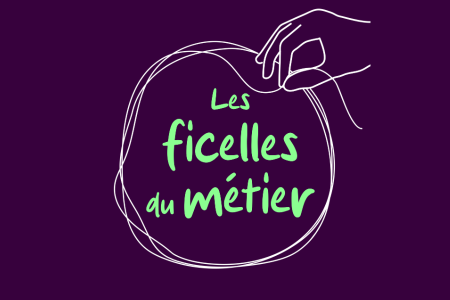 Podcast
Podcast
Knowing how to give up. Sierra Leone 1999: in the clutches of the RUF
01/15/2025For the moment, this podcast is only available in French.
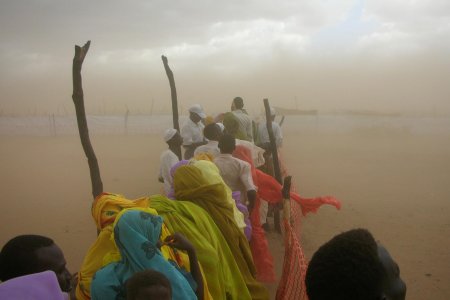 Voitek Asztabski
Speaking Out Case Studies
Voitek Asztabski
Speaking Out Case Studies
MSF and Darfur 2003-2009
09/01/2024The “MSF and Darfur 2003-2009” case study describes the constraints, questions and dilemmas faced by MSF with regards to speaking out about extreme violence, massive displacements and terrible survival conditions endured by the population in the Darfur region, Sudan, between 2003 and 2009.
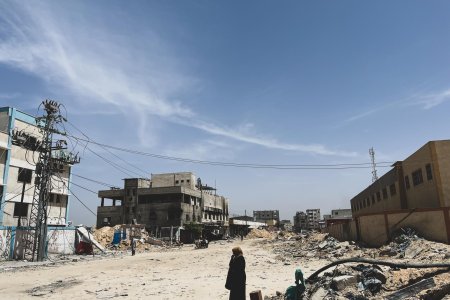 Ben Milpas
Opinion
Ben Milpas
Opinion
Gaza reading list 2, February - June 2024
07/01/2024This reading list gathers articles and videos published between February and June 2024.
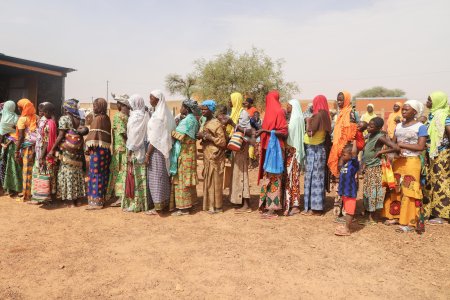 Nisma Leboul
Interview
Nisma Leboul
Interview
What difficulties does MSF face in the Sahel?
06/24/2024Following a series of coups d'état in recent years in Niger, Mali and Burkina Faso, the Sahel region is undergoing a major redefinition. In a context of high insecurity, what are the possibilities for accessing populations? What are the conditions under which our teams are operating, and can we do more? This interview with Hamadoun Dicko, who is in charge of access issues in the Sahel for MSF, was originally published association's website of MSF-France.
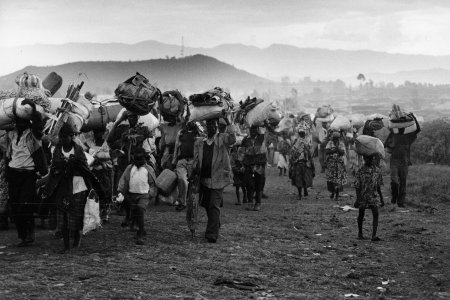 Remco Bohle
Opinion
Remco Bohle
Opinion
Patrick de Saint-Exupéry: a counterfaiter in Congo
10/27/2021In his book, La Traversée. Une odyssée au cœur de l’Afrique, Patrick de Saint-Exupéry challenges the reality of Hutu Rwandan refugees’ hunt and massacre facing the advancement of the Rwandan Patriotic Army and their Congolese allies in 1996-97. This systematic exercise of denying reality – especially the denial of the Mapping Report written by the Office of the United Nations High Commissioner for Human Rights (1143 pages, published in June 2009) – but also this denial of Human Rights Advocacy groups’ investigations, and those of journalists’ witnesses present in DRC at the time – does not spare MSF’s teams who came to help these refugees in 1996-97. However, as a front-line witness of the Tutsi genocide in Rwanda, MSF was also one of the organizations noticing the intense violence perpetrated by the new Rwandan political regime in Zaire / DRC back in 1996 and 1997, mostly against a population constituted at three-quarters of women and children.
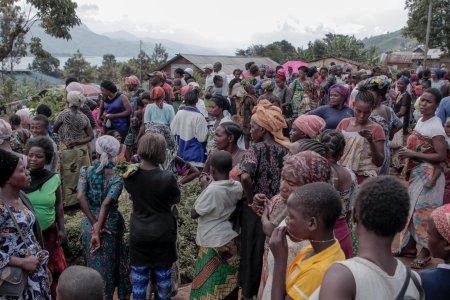 Yves Ndjadi
Book
Yves Ndjadi
Book
Extreme violence. Investigating, Saving, Judging Democratic Republic of Congo, Rwanda, Syria
09/23/2021Over the last few years, Rwanda, the Democratic Republic of Congo (DRC) and Syria have been places where situations of extreme violence took place. As witnesses and investigators of such, the authors of this book shed light on three key-moments that marked these tragic episodes: the investigation, the intervention of emergency relief teams and the implementation of justice procedures leading to judgement.
Humanitarian Field Practices in the Context of the Syrian Conflict from 2011 to 2018
03/15/2021This article was first published in Issue 2, Volume 2 of The Journal of Humanitarian Affairs.
How can a medical humanitarian organisation deliver emergency assistance in Syria when there is nowhere in the country where civilians, the wounded and their families, medical personnel and aid workers are not targeted? Not in the areas controlled by the government, nor in those held by the Kurdish Democratic Union Party (PYD), Islamic State of Iraq and the Levant (ISIL) or the different rebel groups. So what action could be taken, and how? Remotely or on site? At the very least, we had to decipher the diverging political and military agendas, and then adapt, persist or sometimes just give up. In this article, I will present the full range of methods used to acquire knowledge and obtain information as well as the various networks used to carry out this venture. I will also show how Médecins Sans Frontières’ operations became a balancing act, punctuated by episodes of adapting to the various difficulties encountered.
MSF and kidnappings - the secrets and the dilemmas
09/18/2020On the 31st January, a symposium was held at Sciences Po in support of Fariba Adelkhah and Roland Marchal, researchers at Sciences Po's Center for International Research (CERI) who were arrested in Iran on June 5, 2019. Roland Marchal was released on 20th March 2020 in exchange for an Iranian engineer detained in France. On 6th May Fariba Adelkhah was sentenced to 6 years imprisonment for "propaganda against the political system of the Islamic Republic, and collusion to undermine national security". The researcher was offered conditional release on condition that she terminates her research, but she refused.
The symposium brought together diplomats, journalists, humanitarians and researchers, with the aim of "nourishing reflection about prisoners and hostages, from a political, legal and ethical point of view". Fabrice Weissman presented the experience of Médecins Sans Frontières in the face of kidnappings.
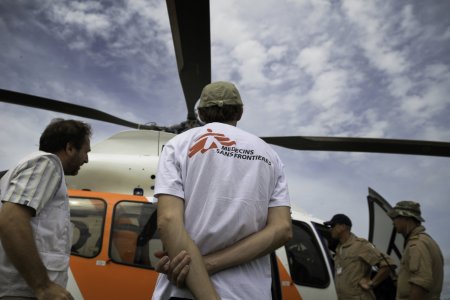 Robin Meldrum/MSF
Analysis
Robin Meldrum/MSF
Analysis
Ending the Code of Silence on Abductions of Aid Workers
11/22/2019This article discusses the policy of absolute secrecy on abductions adopted by aid organisations. It argues that the information blackout on past and current cases is to a large extent a function of the growing role of private security companies in the aid sector, which promote a ‘pay, don’t say’ policy as a default option, whatever the situation. The article contends that secrecy is as much an impediment to resolving current cases as it is to preventing and managing future ones. It suggests abandoning the policy of strict confidentiality in all circumstances – a policy that is as dangerous as it is easy to apply – in favour of a more nuanced and challenging approach determining how much to publicise ongoing and past cases for each audience, always keeping in mind the interests of current and potential hostages.
